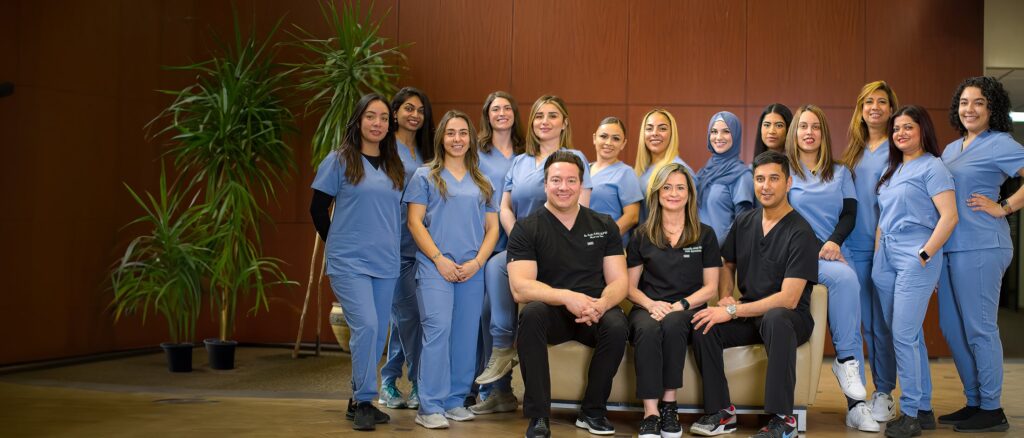Article Key Findings
- Ethical vein treatment is a major concern due to a lack of oversight on who can practice as a vein specialist.
- Patient outcomes are highly variable with vein treatment as a greater number of non-vascular physicians are performing vein procedures. A high level of dissatisfaction and distrust with vein treatment exists due to the variability in physician experience.
- Overdiagnosis and overtreatment are common among healthcare providers lacking formal vascular training (pain management, physiatrists, physical therapy)
- Spider and Varicose Vein Treatment should be restricted to vascular specialists with formal training in either cardiovascular disease, vascular surgery, or interventional radiology.
- Non-vascular specialties performing vein treatment (pain management, internists, physiatrists) are encouraged to become certified by ABVLM to demonstrate clinical competence in venous disease. The certification demonstrates a commitment to maintain the highest quality and standards for vein treatment.
- Physician extenders, including ultrasound technicians, physician assistants, and nurse practitioners, should not be directly performing vascular procedures.
- Sedation or anesthesia for minimally invasive vein procedures is costly and unnecessary in the majority of cases. It likely indicates inexperience with vascular procedures.
- 10 Core Principles of Ethical Vein Treatment
What is the Problem?
An all too common scenario is occurring throughout the country related to over-treatment of vein disease. Patients with simple spider veins are presenting to specialty vein clinics following unnecessary invasive medical vein treatments elsewhere. The most common complaints are:
- The primary issue of spider veins was never addressed
- Medical vein procedures were pushed ahead of the patient’s actual concerns
- The doctor seemed unsure why the pain persisted after several ongoing procedures
- The clinic did not seem interested in the care after vein treatments were completed
There exists a large gap between what patients are experiencing and what is being treated. Whether it’s inexperienced providers or a faulty diagnosis, we find an incredible need to educate patients and physicians about ethical vein treatment.
Why is There So Much Inappropriate Vein Treatment?
There has been a deviation from evidence-based clinical practice and appropriateness regarding vein treatment, and this has led to an exponential growth in venous procedural volume and unqualified practitioners performing venous interventions. In our opinion, there are several likely explanations to the increase in vein procedures:
- Diminishing reimbursements from insurance have led many practitioners to add services. Vein Treatment has become one such add-on service at physical therapy, pain management clinics, and even internal medicine practices. Supplemental income from vein treatment is the driving force, and with inexperience, there is over-treatment.
- Increased practice burden with overhead and pandemic-related closures.
- Migration of physician-owned practices to private equity and hospital-based practices emphasizing volume and profit over quality.
- Industry-led courses to learn vein procedures during short weekend medical education seminars. For the most part, this has led to an increased number of practitioners unaware of the standards for vein treatment.
- Patients seeking out cost-free solutions for spider vein treatment and enamored with free consultations.
Who is a Vein Specialist?
- High-Level Vascular Experience
- Vascular Surgeons
- Cardiovascular Specialists
- Vascular Medicine (ABVLM)
- Interventional Radiologists
No Formal Vascular Training
- Pain Management Doctors
- Physiatrists
- Podiatrists
- General Practitioners
Of the currently recognized American Board of Medical Specialties (ABMS) and subspecialties, only vascular surgery, interventional radiology, and cardiology have specific venous training. While some physicians are providing excellent venous care independent of their specialty designation, a critical gap exists between the training level and scope of practice for certain practitioners.
This can lead to serious consequences for both the patient and physician performing vascular procedures out of their depth. ABVLM is a pathway for non-traditional vein specialists to demonstrate clinical competence through certification.
How Can We Fix This Problem?
Promoting sound ethical behavior and core values of professionalism should be fundamental to all vein practices. Providers should reflect on their practice: Am I providing ethical care guided by the patient’s best interest in both the short term and long term?
What is Ethical Vein Treatment?
At the Vein Specialist Centers (VSC), our core philosophy is to provide sound medical advice based on expertise gained through rigorous academic training, continuing medical education, and achievement of board certification in a vascular specialty.

The 10 Core Components of Ethical Vein Treatment
Investment Into Practice Technology
VSC regularly invests in technologies that aid in the comfort of procedures and efficacy. A few examples include.
- Surgical beds: Each office is equipped with modern spa beds to allow for optimal positioning during each procedure.
- Asclera (polidocanol) is our preferred treatment for spider vein treatment. The medication is purchased on behalf of our patients and is for single use only. Conversely, compounded medications like non-Asclera® polidocanol are not approved by the FDA. They have not been evaluated or verified for safety or effectiveness. Despite the increased cost, we believe the safety and consistency of Asclera warrant its use over compounded formulas. Over the next few months, we will be regularly using Asclera unless the doctor has indicated it.
- Syris light augmentation is utilized by all our vein doctors for enhanced visualization of spider veins, The technology has increased both the effectiveness and safety of treatment.
- Microfoam Polidocanol is the FDA-approved treatment for mid-sized varicose veins visible on the skin. The treatment is covered by insurance, yet it is a costly expense for many clinics. As such, it is commonly substituted with generic polidocanol, which lacks the stability and uniformity of Microfoam.
- Emergency equipment is not something we hope to ever use. However, our vein clinics maintain necessary medications, including epinephrine, steroids, and IV fluids, if the need arises.
Vascular Imaging
Cardiologists, Radiologists, and Vascular Surgeons are formally trained in understanding vascular imaging and providing accurate interpretation. Vascular imaging is essential to the proper diagnosis and treatment of venous insufficiency.
It is simply outside the scope of an internist or pain management physician to interpret vascular ultrasounds. Despite any assurances that the images are sent to an independent third party for interpretation, we advise patients to approach with caution!
Treat The Patient, Not The Ultrasound
An ultrasound can often detect early signs of venous insufficiency, even in individuals with simple spider veins. This alone does not justify medical interventions but assists doctors with understanding how treatment will be impacted. However, it needs to be emphasized that spider veins are not cured or entirely prevented by medical vein treatments despite certain promises. A vein specialist should help you navigate your options and guide you toward your treatment goals.
Board-certified vascular experience
In practice today, there are an incredible number of untrained physicians inflating their experience as vein specialists without ever completing any vascular training or board certification. This is especially true of many newly formed vein centers provided by pain management doctors, internists, and physiatrists. Unknowing patients seeing pain specialists for leg pain are commonly worked up for vein disease despite a lack of clinical or physical signs of varicose veins. An undelivered promise to cure leg pain with minimally invasive vein treatments. Having found lucrative reimbursements, many clinics employ aggressive tactics to gain referrals from closely associated practices.
We specifically ask patients to be wary of referrals to vein specialists without vascular training from Podiatry and Physical Therapy. This is a concerning trend and should be scrutinized carefully before proceeding with treatment.
We would invite patients to be aware of the financial incentives referring doctors might have with particular vein specialists. This can include ownership in surgical centers where patients are taken for procedures. In general, any doctor is obliged to share their financial disclosure with a surgical center, but this does not apply to referring colleagues.
At VSC, our vein doctors all have undergone intense procedural training for minimally invasive vein procedures. Each doctor is hand-selected based on their background training and maintenance of board certification in a vascular-specific field.
Dr. Alissa Brotman is currently the President of The Vascular Society of New Jersey. Dr. Claudia Rios is a veteran in the field of phlebology and is a diplomate of the American Board of Vascular and Lymphatic Medicine (ABVLM). Drs. Faisal Siddiqi and Simon Smith are both board-certified cardiovascular specialists with interventional training.
Full Time Employed Vascular Technologist
Many pop-up vein centers do not employ their vascular techs as a cost-saving measure. Instead, technicians are brought in on a weekly basis as “hired guns” incentivized to find abnormal studies. What Else To Look Out For:
Non-credentialed techs are directly performing the procedures and are incentivized to fill in the role of the doctor. This is both dangerous and unprofessional, whether it’s a physician assistant, nurse practitioner, or ultrasound technician. Many of these individuals will tout incredible numbers of procedures and experience. However, only a properly trained physician can be responsible for the success and ethical performance of a procedure. Most importantly, only a properly trained physician can understand the individual risk of each procedure. Unknowing patients sedated for minimally invasive procedures otherwise performed under simple local anesthetics by skilled vein doctors are especially vulnerable to this practice.
Continuing Medical Education & Leadership
Our talented doctors honor their commitment to providing the highest quality of care. Dr. Alissa Brotman was recently appointed as President of the Vascular Society of New Jersey. The independent organization is dedicated to establishing standards of proficiency in the recognition and care of vascular disease (including vein treatment). We fully support this objective!
Ethical Billing
Cosmetic sclerotherapy should not be billed to insurance as it threatens the integrity of our specialty. Sclerotherapy is covered under medical necessity for large varicose veins close to the skin or, in some cases, neovascularization.
It is inappropriate for use with spider vein treatment, and any potential cost-savings are not likely associated with high-quality treatment.
Anesthesia
As a minimally invasive procedure, vein ablation and varithena do not routinely require conscious sedation or anesthesia. For most doctors who are comfortable with the procedure, vein ablation can be performed with little or no discomfort using simple local anesthetics. For some patients with extreme sensitivity or apprehension, an oral sedative can provide the necessary relaxation when needed. Rarely, a patient may require conscious sedation, and the risks and benefits of this approach should be discussed ahead of time. We believe that anesthesia provides an unnecessary risk, usually by inexperienced providers uncomfortable with their technique.
Dedicated Vein Centers
The Vein Specialist Centers is entirely dedicated to the treatment of spider veins and varicose veins. Conversely, some non-vascular doctors have found vein treatment an opportunity to expand their services.
We feel strongly that vein treatment requires the utmost dedication and attention to achieve high-quality results and patient satisfaction.
Only Doctors Perform Medical Procedures
In some clinics, health extenders including Nurse Practitioners and Physician Assistants, are performing vein ablations and medical sclerotherapy in place of the doctor. Despite assurances that these procedures are supervised by the attending, this is far from the case. Many times, the physician is at a remote location, providing zero support or supervision. The primary intention is to provide as many treatments as possible in a single day. We refer to this as “Fast food” medicine. Vascular procedures are not intended to be performed by health extenders, and any deviation from this practice is a serious concern.

Conclusion
Our mission at VSC is to provide modern medical treatments for vein insufficiency with clinical integrity and competence and the utmost respect for each patient’s individual goals. We empower patients through knowledge to be active participants in their treatments. Regardless of the changes in the practice of medicine and the challenges presented, VSC is committed to ethical vein treatment.
